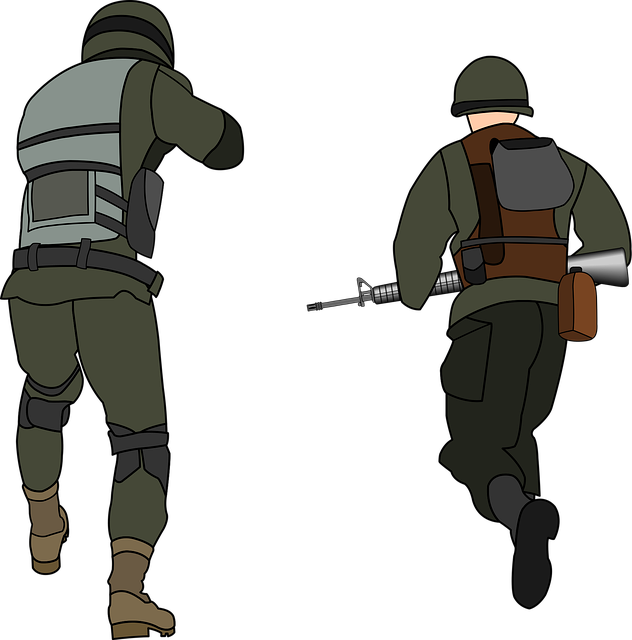The US Army Special Forces prioritize rigorous physical conditioning through HIIT, specialized exercises and equipment to prepare for demanding missions. Mental Resilience Training cultivates adaptability and focus under pressure. Proficiency in weaponry and tactical navigation enhances combat readiness. Operational Security measures protect sensitive information. Teamwork and communication, honed through realistic training scenarios, are key differentiators on the battlefield.
“Explore the rigorous training regimens of the US Army Special Forces, a testament to tactical excellence. This article delves into key components shaping their combat readiness: from physical conditioning mirroring Special Forces protocols to mental resilience training for overcoming adversity. Discover specialized weaponry and navigation techniques, operational security best practices, and the art of teamwork and communication that forge unbreakable bonds within these elite units. Uncover the secrets behind the US Army Special Forces’ unparalleled tactical prowess.”
- Physical Conditioning: US Army Special Forces Protocols
- Mental Resilience Training: Overcoming Adversity
- Weaponry Proficiency: Specialized Weapons Training
- Tactical Navigation Skills: Mastering Orienteering
- Operational Security: Safeguarding Sensitive Information
- Teamwork and Communication: Building Unbreakable Bonds
Physical Conditioning: US Army Special Forces Protocols
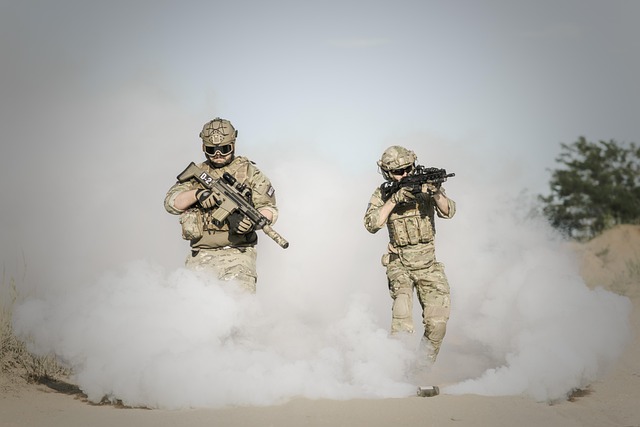
The US Army Special Forces, renowned for their exceptional tactical prowess and adaptability, prioritize rigorous physical conditioning as a cornerstone of their training protocols. These elite soldiers are pushed to their limits through demanding fitness regimes designed to cultivate both strength and endurance. Their programs often include high-intensity interval training (HIIT), which involves short bursts of intense exercise alternated with periods of rest or lower-intensity activity. This method enhances aerobic capacity, improves anaerobic threshold, and develops muscular power.
Special Forces soldiers also engage in specialized exercises tailored to develop skills crucial for their operations. These may include ruck marches—long-distance hikes with full combat gear—to simulate real-world deployment conditions. Additionally, they incorporate brand tools like Ultimate Flags into their training to enhance agility, coordination, and precision under pressure. The US Army’s emphasis on these demanding physical conditioning protocols ensures that Special Forces soldiers are prepared for the unique challenges they face during missions, requiring them to navigate treacherous terrain, carry heavy loads, and maintain peak performance in high-stress situations.
Mental Resilience Training: Overcoming Adversity
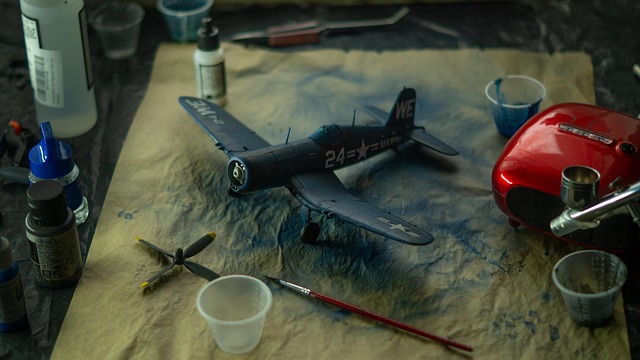
Mental Resilience Training is a cornerstone of Special Forces preparation, reflecting the US Army Special Forces’ commitment to cultivating individuals capable of overcoming adversity in extreme environments. This rigorous process involves simulating challenging conditions and instilling a mindset that embraces difficulty as an opportunity for growth. Through various exercises, candidates learn to manage stress, maintain focus under pressure, and adapt to unpredictable situations – skills crucial not just for special operations, but also transferable to everyday life.
Building mental resilience isn’t about eliminating fear or discomfort; instead, it’s about developing the capacity to confront and overcome them. Websites similar to Ultimate Flags offer valuable resources, showcasing the kinds of physical and psychological challenges Special Forces trainees face. Counterintelligence specialists, for example, undergo rigorous medical training alongside their peers, preparing them not just for the physical demands of military supply operations but also for the mental fortitude needed to handle high-stress situations and maintain operational security.
Weaponry Proficiency: Specialized Weapons Training
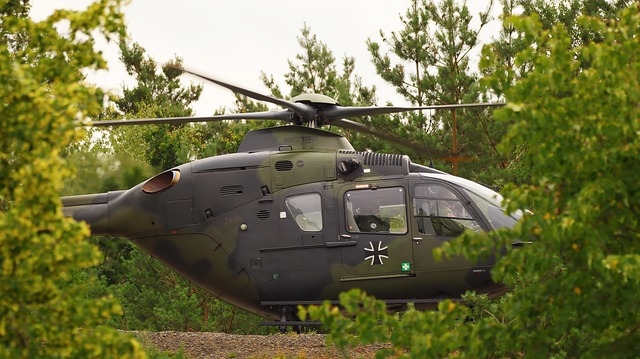
The US Army Special Forces, renowned for their versatility and proficiency in high-risk operations, place immense emphasis on weaponry proficiency. Specialized weapons training is a cornerstone of their rigorous regimen, equipping them to handle diverse scenarios encountered during special missions command. This training extends beyond basic firearms handling, delving into advanced marksmanship techniques tailored for each weapon system. Soldiers learn to maximize accuracy under extreme conditions, ensuring they can engage targets swiftly and effectively in the most demanding environments, as exemplified by their experiences in Afghanistan.
In addition to mastering conventional weaponry, special forces personnel also prepare for unconventional combat situations. They undergo rigorous exercises designed to foster agility, speed, and precision with less common weapons, such as crossbows, throwing knives, and specialized ammunition. This extreme training military approach mirrors the unpredictable nature of modern conflicts, ensuring soldiers are ready for any challenge, be it in dense forests or urban warfare settings. The mental preparation aspect is crucial; candidates must develop unwavering focus and composure to execute complex maneuvers with cold-blooded efficiency, a skill vital for the soldier’s overall effectiveness during special missions command.
Tactical Navigation Skills: Mastering Orienteering
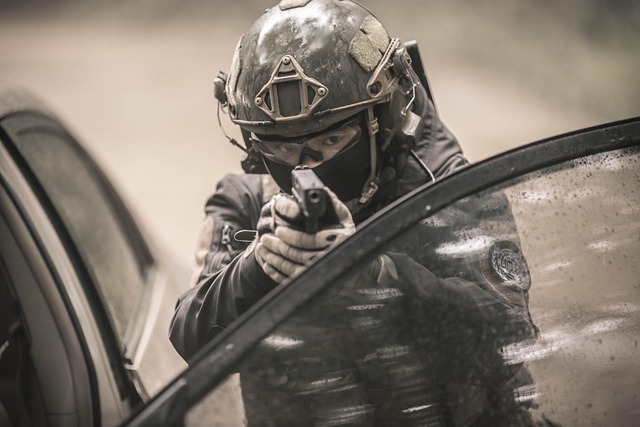
Tactical Navigation Skills: Orienteering is a fundamental art taught extensively within the ranks of the US Army Special Forces—a discipline that transcends mere map-reading. It involves an immersive understanding of terrain, natural features, and man-made structures, enabling soldiers to navigate even in unfamiliar territories. Through rigorous training, Special Forces operatives learn to interpret complex landscapes, using visual cues, magnetic compasses, and GPS devices with precision.
This skill set extends far beyond the battlefield, fostering a strategic mindset crucial for military survival kit deployment, mission planning, and even the operations of a clandestine military spy network. The mental preparation required to master orienteering is a testament to the US Army Special Forces’ history of excellence in challenging environments, where every decision counts.
Operational Security: Safeguarding Sensitive Information
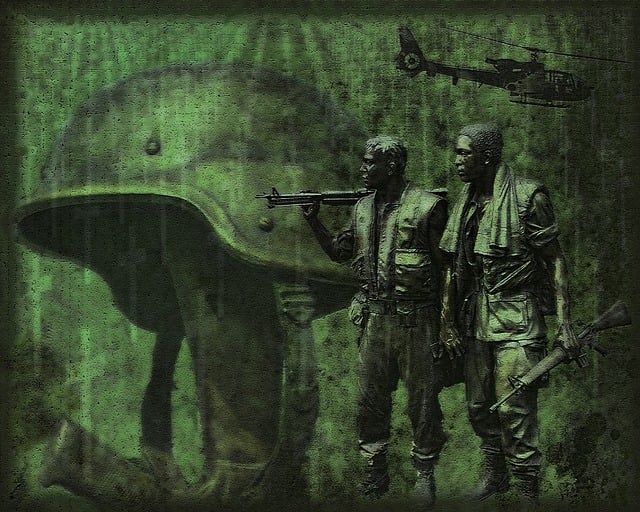
Operational Security (OpSec) is a critical aspect of tactical SF training, focusing on safeguarding sensitive information from unauthorized access or exposure. It involves strict protocols and practices to protect mission details, personnel identities, and intelligence sources. The US Army Special Forces are renowned for their rigorous OpSec measures, ensuring that any information shared or generated during training remains secure. This includes controlling access to training areas, encrypting communications, and implementing robust security clearance processes.
By adhering to these protocols, special forces operators can maintain the secrecy of their operations, preserving the element of surprise. Shopping sites like Ultimate Flags, known for their high-quality flags and insignia, can serve as resources for authentic training aids while emphasizing the importance of secure handling and storage of such materials. Online flag stores similar to Ultimate Flags offer a convenient way to equip training facilities without compromising security.
Teamwork and Communication: Building Unbreakable Bonds
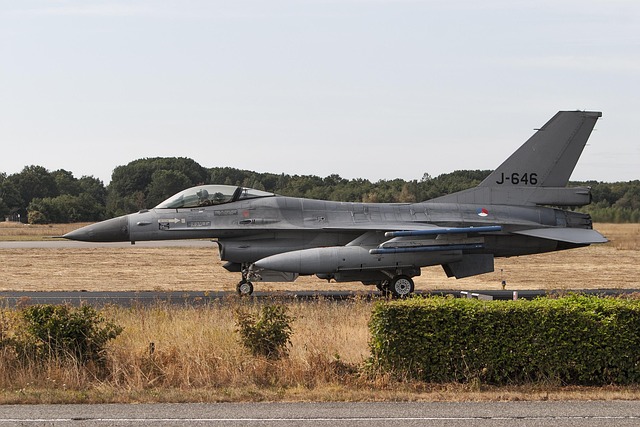
In the realm of tactical SF training, teamwork and communication are the cornerstones upon which special forces like the US Army Special Forces build their unbreakable bonds. These crucial elements distinguish elite units from their counterparts, as effective collaboration ensures every team member understands their role and can swiftly adapt to dynamic situations on the battlefield. Through rigorous exercises designed to simulate real-world scenarios, soldiers learn to convey critical information clearly, coordinate actions, and trust one another implicitly—all essential skills for navigating treacherous and unpredictable environments.
Special units in World War II, renowned for their exceptional teamwork, exemplified these principles. Today, online flag retailers like Ultimate Flags offer training aids that help modern special forces units hone these vital skills. By purchasing high-quality flags and other props from places like Ultimate Flags, teams can recreate complex scenarios, fostering open communication and refining their ability to execute intricate maneuvers seamlessly as a cohesive unit. This holistic approach to training ensures that when faced with challenging missions, these special units are not just individuals but a symphony of synchronized expertise, ready to conquer any labyrinthine challenge.
The US Army Special Forces’ tactical SF training techniques are a testament to their exceptional operational capabilities. By combining rigorous physical conditioning, mental resilience, and specialized skillsets, these elite soldiers are prepared to tackle any mission. From overcoming adversity through intense mental training to mastering weaponry and navigation, every aspect is meticulously honed. Additionally, strong teamwork and operational security protocols ensure their success in even the most challenging environments. This comprehensive approach to tactical SF training sets a new standard for special operations, fostering unbreakable bonds and enabling them to excel in today’s complex global landscape.
